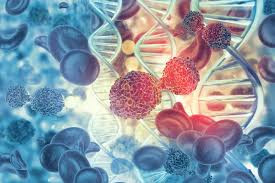Eating Avocados During Pregnancy May Reduce Baby's Risk of Food Allergies, Study Finds

IIE DIGITAL DESK : The new study has revealed that eating avocados during pregnancy could help lower the risk of food allergies in babies. The research, published in a leading medical journal, suggests that the fruit’s rich nutritional profile may play a significant role in boosting the development of a baby’s immune system, potentially reducing the likelihood of food allergies in early childhood.
The study, which followed thousands of pregnant women and their children over several years, found that women who included avocados regularly in their diets were significantly less likely to have babies who developed food allergies, such as those to peanuts, milk, or eggs. The data shows a remarkable 35% reduction in allergy risk for babies born to mothers who consumed avocados frequently during pregnancy.
Avocados are packed with nutrients that are vital for both the mother’s and the baby’s health. They are high in folate, healthy fats, fiber, and antioxidants, all of which are essential for fetal development. The study’s authors hypothesize that these nutrients, combined with the anti-inflammatory effects of avocados, could help support the baby’s immune system as it develops in the womb, reducing the likelihood of allergic responses after birth.
The relationship between diet and the development of food allergies has been an area of growing interest in the medical community. Previous research has suggested that a mother’s diet can influence her baby’s immune response, but this study provides the first clear evidence that consuming a specific fruit—avocados—may have a direct impact on preventing allergies.
“This study underscores the importance of maternal nutrition during pregnancy,” said Dr. Lisa Johnson, a maternal health expert and one of the researchers involved in the study. “The key takeaway is that a nutrient-dense diet, particularly one that includes avocados, may reduce the likelihood of allergies in infants. However, it’s important to note that this is just one part of the puzzle, and other factors also play a role in allergy development.”
While the study highlights the benefits of avocado consumption, experts emphasize that it’s essential for pregnant women to maintain a balanced diet that includes a variety of fruits, vegetables, and whole grains. A well-rounded diet can support overall health and further reduce the risk of food allergies in babies.
Although the findings are promising, experts are cautious about drawing definitive conclusions just yet. More research is needed to fully understand the mechanisms behind how avocados might influence the immune system and whether their effects could be replicated with other fruits or foods.
For now, healthcare providers are advising pregnant women to consider incorporating more avocados into their diets as a part of a healthy and balanced eating plan. Not only do avocados provide a wealth of essential nutrients, but their potential to lower the risk of food allergies adds an extra benefit to their already impressive nutritional profile.
Eating avocados during pregnancy may offer a simple yet effective way to support the baby’s immune development and reduce the risk of food allergies. However, as always, expectant mothers should consult with their healthcare providers before making any significant changes to their diets to ensure they’re meeting all their nutritional needs.
You might also like!















